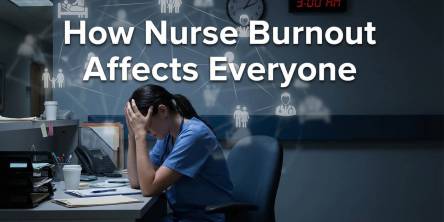4 Ways To Raise A Healthy and Happy Child

There I nothing more important to a parent than ensuring that their child is safe, happy and healthy. Kids have unique concerns, and when they’re growing, they can be more vulnerable to physical and mental health problems than we first might think. So, here are 5 things parents can do to ensure that their child is healthy as they grow up.
A balanced diet
It’s vital that kids are eating a healthy, balanced diet when they are younger as this is going to set them up for the rest of their lives. Kids need plenty of vitamins and nutrients when they’re developing, and much of this comes from their diet.
A general rule of thumb is to fill their pate half full with fresh fruits and vegetables, a quarter full with whole grains and the remaining quarter with healthy protein. As well as this, here are a few other dietary tips to keep kids healthy:
- Eat more unsaturated fats and avoid saturated fats and trans fats
- Use only healthy oils, such as extra virgin olive oil, canola oil and sunflower oil
- Limit the use of butter in cooking
- Encourage drinking water over soft drinks or fizzy drinks
- Milk and dairy products are a good source of calcium and vitamin D – though they don’t allow overconsumption
- Choose unflavored milks, plain yoghurt and only small amounts of cheese, and other unsweetened dairy products
Enough exercise and time outdoors
Kids have seemingly endless energy, and they need to be staying active to burn some of this off and get that much-needed exercise. For some kids, this is no issue at all, and they’ll happily spend all day every day out and about, burning off their energy and letting their imagination run wild. For other parents, getting their kids to spend time outside is more difficult. For these parents, here are some tried and test tips:
- Limit screen time from an early age – use time in front of the TV or iPad as a reward and limit how long they use it or use it as a family time
- Be a role model – kids copy what their parents do, so let them see you taking exercise seriously
- Involve the whole family – get both parents involved, as well as older siblings and even pets if they can. Making it fun for the whole family will encourage them to take part
- Make exercise fun – instead of just something boring like a walk or a run, make it fun! Get creative, involve toys, get them using their imagination.
- Use competition as a motivator – which kids can run faster? Do more starjumps or find something you’ve hidden first? Playful competition like this is a good motivator
- Make activity social – get their friends involved, take them somewhere for a few hours such as a play park or the beach or a sports field!
Trust the professionals
There’s no substitute for proper care from a doctor when it comes to looking after your child’s health. Kids have weaker immune systems when they’re younger, as well as more fragile bones. So, naturally, they are more prone to getting into trouble and getting injured. At one point another all kids get a little too enthusiastic and end up injured, so always trust the opinion of your doctor’s.
When your kids are growing up, make sure you take them to all their doctor’s appointments and get check-ups regularly. Also, make sure you are getting them all of their necessary vaccinations after they are born. This will help stop them from getting sick as they get older, protecting not only them but other kids as well.
Make sure you’re also keeping on top of dentist visits as they get older, and make time to take them to have their eyes checked as they’re growing to make sure if they need glasses, they get them as soon as possible.
Help them stay social
Some kids make friends very easily, and others are a little more reserved. Being social and having connections with other kids their own age is good for their mental health and for helping them understand emotional relationships and the importance of friendships.
One thing you can do to encourage your kids to be more social is to follow their interests. Do they have a particular interest in a sport? Are they interested in art, music or drama? If they are, encourage them to get into classes or join a school club. Starting young always helps, so if you have other family members with kids similar in age to your own or friends who have kids their age, get them together. This will help them get used to social groups and will help them make friends later on.
Again, kids learn from your behaviour. If they see their parents and even their other siblings practising good friendships, then they are likely to take this behaviour onboard and emulate it for themselves.
Similar Articles
Most people think health problems start suddenly. One day you feel fine, the next day something is wrong. In reality, most health issues develop slowly .They grow quietly in the background while life keeps moving.
The start of a new year is a natural time to pause, reflect, and think about how you want to feel in the months ahead. For those over 60, a fresh start does not mean setting unrealistic resolutions or making drastic changes.
Picture this: You're parked at your workspace, battling to focus on what should be a straightforward five-minute task. That afternoon slump? It's demolishing you today.
Joint pain and arthritis are common health issues that tend to become more intense during the winter season
Discover the benefits, challenges, and future of locum medical jobs. Learn how locum recruitment agencies support flexible, diverse career opportunities for healthcare professionals seeking dynamic work environments.
Burnout in the healthcare environment is a significant and growing crisis.
NAD+ therapy restores cellular energy, enhances metabolism, and promotes anti-aging by supporting DNA repair and improved overall vitality.
Seasonal Affective Disorder (SAD) is a type of depression linked to seasonal changes, most commonly seen during the late fall and winter months when sunlight exposure decreases
Enhance sleep comfort and support with a mattress topper queen. Discover how the right topper improves pressure relief, temperature control, and rest.









